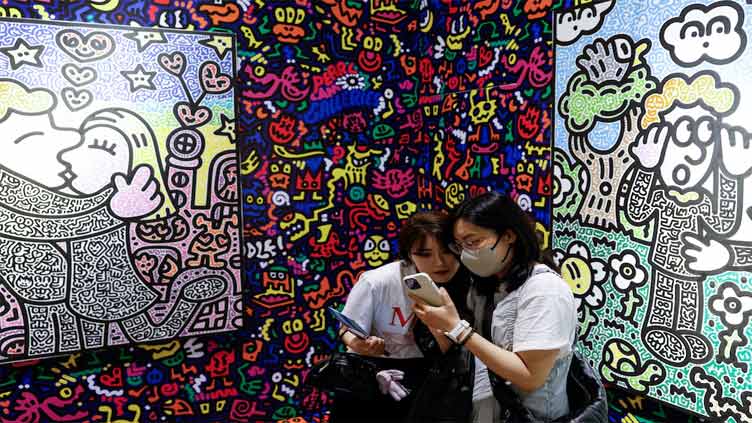Hong Kong seeks Asian arts hub status; critics worry about freedoms

World
The law came into force despite growing international criticism
HONG KONG (Reuters) - Hong Kong is seeking to revive its arts scene to become a regional cultural hub, but some art critics have said they were concerned that a new security law may hinder creativity ahead of a series of events that include Art Basel Hong Kong.
The law came into force on Saturday despite growing international criticism that it could erode freedoms in the China-ruled city and damage its international financial hub credentials.
On Monday, Hong Kong's leader John Lee inaugurated the Hong Kong International Cultural Summit by saying the government plans to inject $550 million into various art initiatives including a film fund to build Hong Kong into an "East-meets-West centre for international cultural exchange".
"The Hong Kong government attaches great importance to propelling Hong Kong's rise as a cultural hub. And we're serious about this," he said.
Some art critics, however, said the national security law had added to their concerns about freedoms, especially after the arrests of publishers and journalists in a clampdown imposed by China after the city's anti-government and pro-democracy protests in 2019.
Under the clampdown, which China said was necessary to restore order to Hong Kong, activists, publishers and journalists have been detained or jailed for sedition, books have been pulled from public libraries, and theatre and dance groups were prevented from performing.
Under the new law, which the Hong Kong government says is necessary to plug legal loopholes, jail terms for sedition have been stiffened from 2 years to 10 years.
"It is an art market which, in a sense, colludes with the government to prevent a certain range of expression from occurring," Eric Wear, a member of the International Association of Art Critics, told Reuters.

"I'm not particularly concerned about its collapse, but it becomes a much more limited, more conservative market that is not necessarily engaged with all of the exciting issues that happen in the arts," he added.
Andrew Jensen, founder of the Fox Jensen galleries in New Zealand and Australia in town for Arts Basel Hong Kong, also said he was concerned about possible fallout from the law.
"You know, clearly we're living in times which are contentious, not just here, but all around the world, and as advocates for cultural expression in art, that's not something we want to see," he added.
One of the events on Hong Kong's art calendar is the prestigious regional art fair Art Basel Hong Kong, which the government said it had spent $1.9 million to bring in as part of broader efforts to revive the city's economy.
Angelle Siyang-Le, director of Art Basel Hong Kong, said the organisers had not experienced any censorship issues.

"So far, we have never really experienced any difficulties," she told Reuters.
One of the highlights of the event is "Friendship First, Competition Second" by Singaporean contemporary artist Ming Wong which features a giant ping-pong ball with video screens displaying stories of pop culture and Cold War diplomacy.


